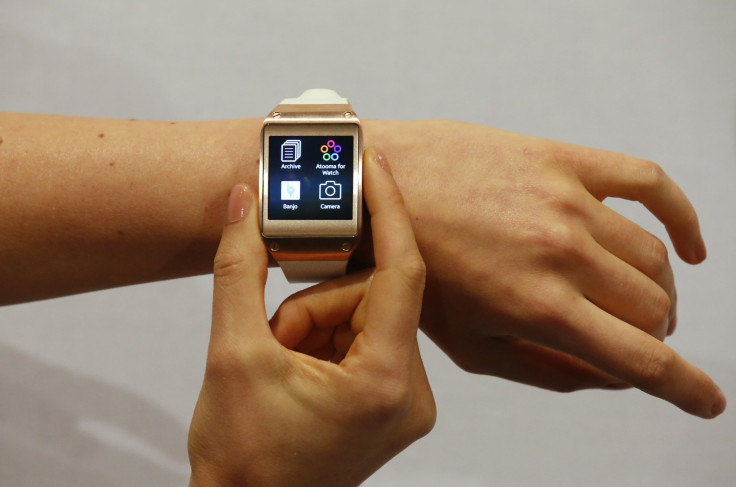Smart Watches Will Not Lure Many Consumers This Holiday Season But Will Remain A Companion To Mobile Phones Through 2017

Despite the hype surrounding smart watches, they will not be able to attract a large number of consumers this holiday season and will have lackluster sales, a Gartner report said on Thursday. The report said the watches' premium pricing and unclear value proposition will cause consumers to favor tablets and fitness bands.
According to Gartner, smart watches are not new, and they only recently expanded beyond the health and fitness market to the mainstream consumer market with the addition of communication features and other smart technologies.
“Samsung and other well-known vendors have recently entered the smart watch space, yet the products we have seen so far have been rather uninspiring in terms of design, available apps and features,” Annette Zimmermann, principal research analyst at Gartner, said in a statement.
According to Zimmermann, wearable devices will remain a companion to mobile phones at least through 2017, with fewer than one percent of premium phone users opting to replace their phone with a combination of a wearable device and a tablet.
Gartner acknowledged that there is a wide range of technical specifications and capabilities in existing smart watches, and there are even models that could potentially replace a smartphone someday e as they are capable of cellular connectivity, displaying messages, making voice calls and streaming music.
"The convenience aspect of using a watch for interaction while leaving the larger-screen phone or tablet in the bag or pocket is something that users can relate to, and they probably recognize its value," Zimmermann said. "However, there are still several significant barriers to mainstream adoption, including low interest and awareness among consumers, poor design and price."
Gartner said the majority of smart watches that have been launched so far carry displays that are “unstylish” for many consumers. Vendors should try to find a balance between a slim design and long battery life as both aspects significantly affect consumers' purchasing decisions.
"Interoperability and stand-alone apps give the smart watch more value on its own -- that is, when it is not connected to a smartphone," Angela McIntyre, research director at Gartner, said. "Even though smart watches play a 'supporting role' to smartphones, designing the smart watch only to act as a secondary device will consign it to failure. Sensors, such as accelerometers, gyroscopes, infrared, microphones and cameras will give software developers greater flexibility to create apps for a broad range of uses."
© Copyright IBTimes 2024. All rights reserved.












